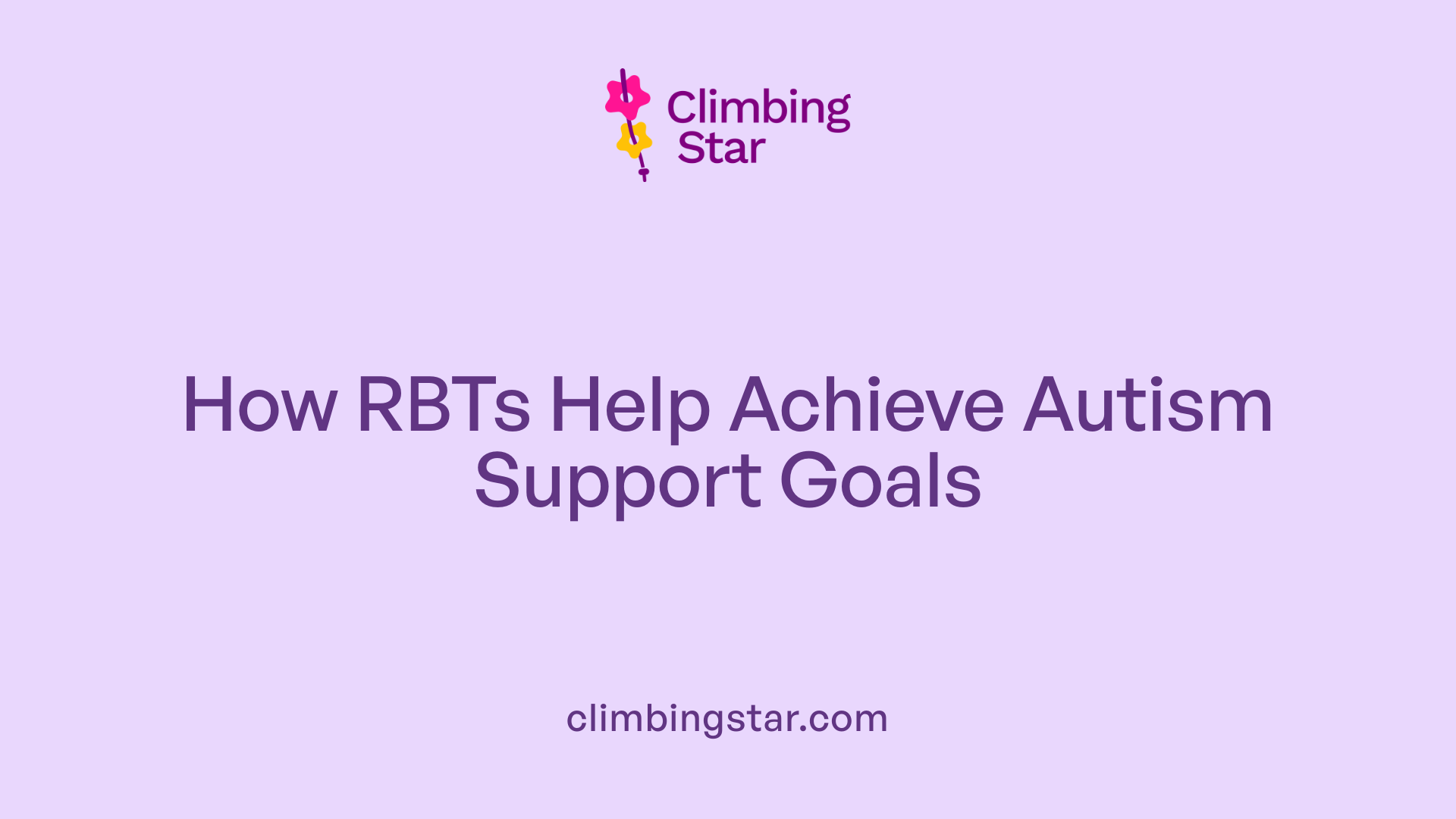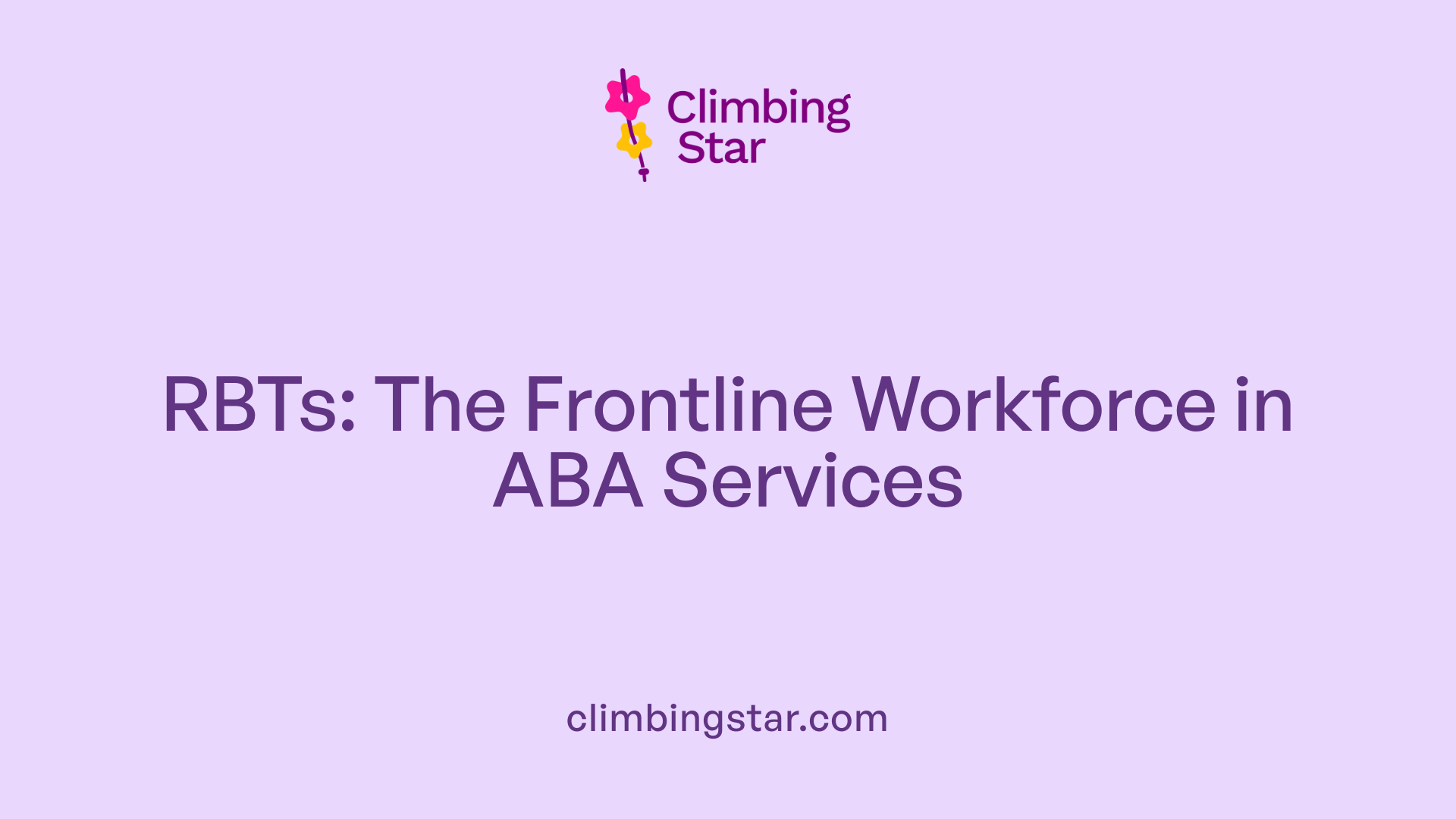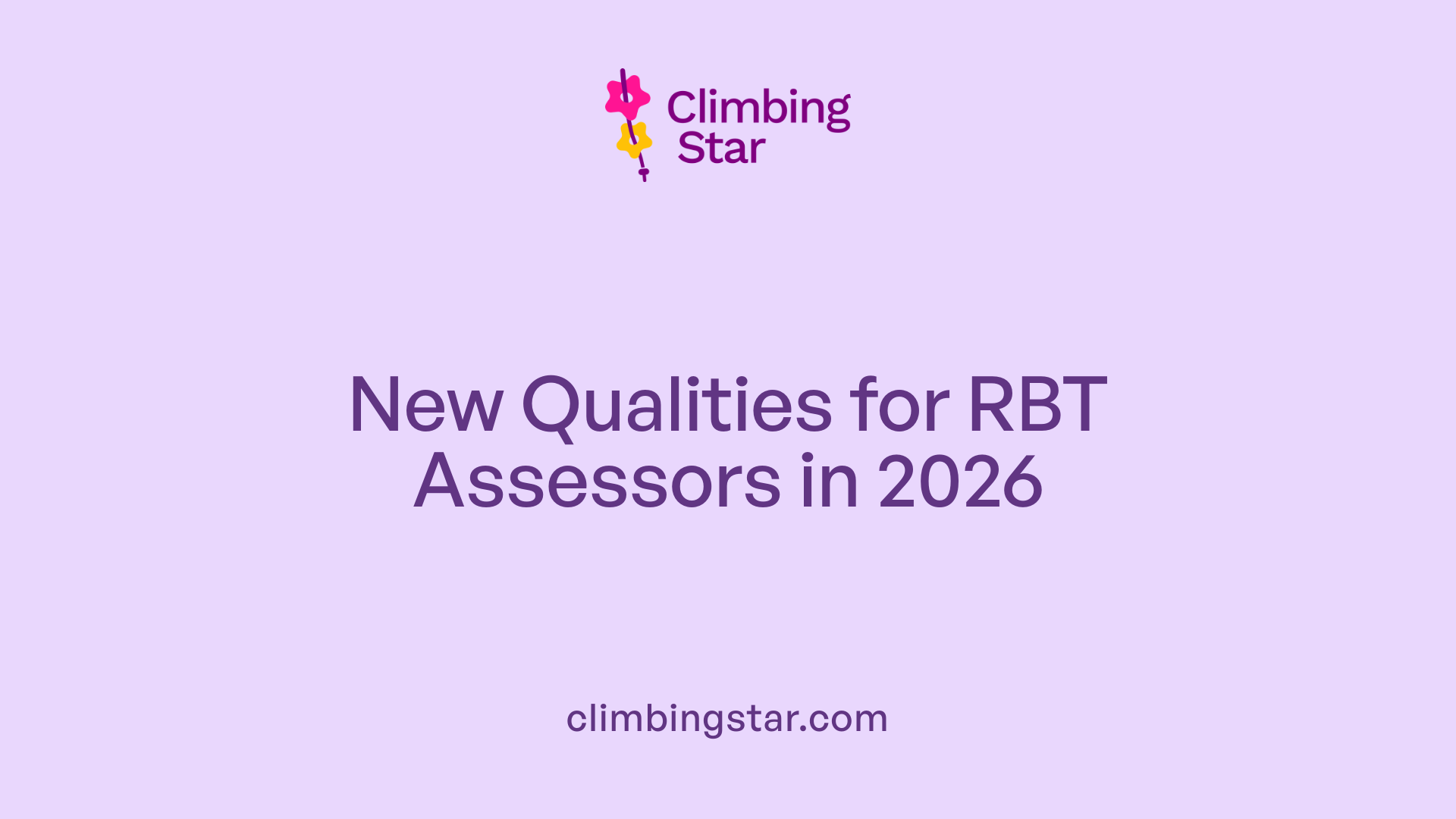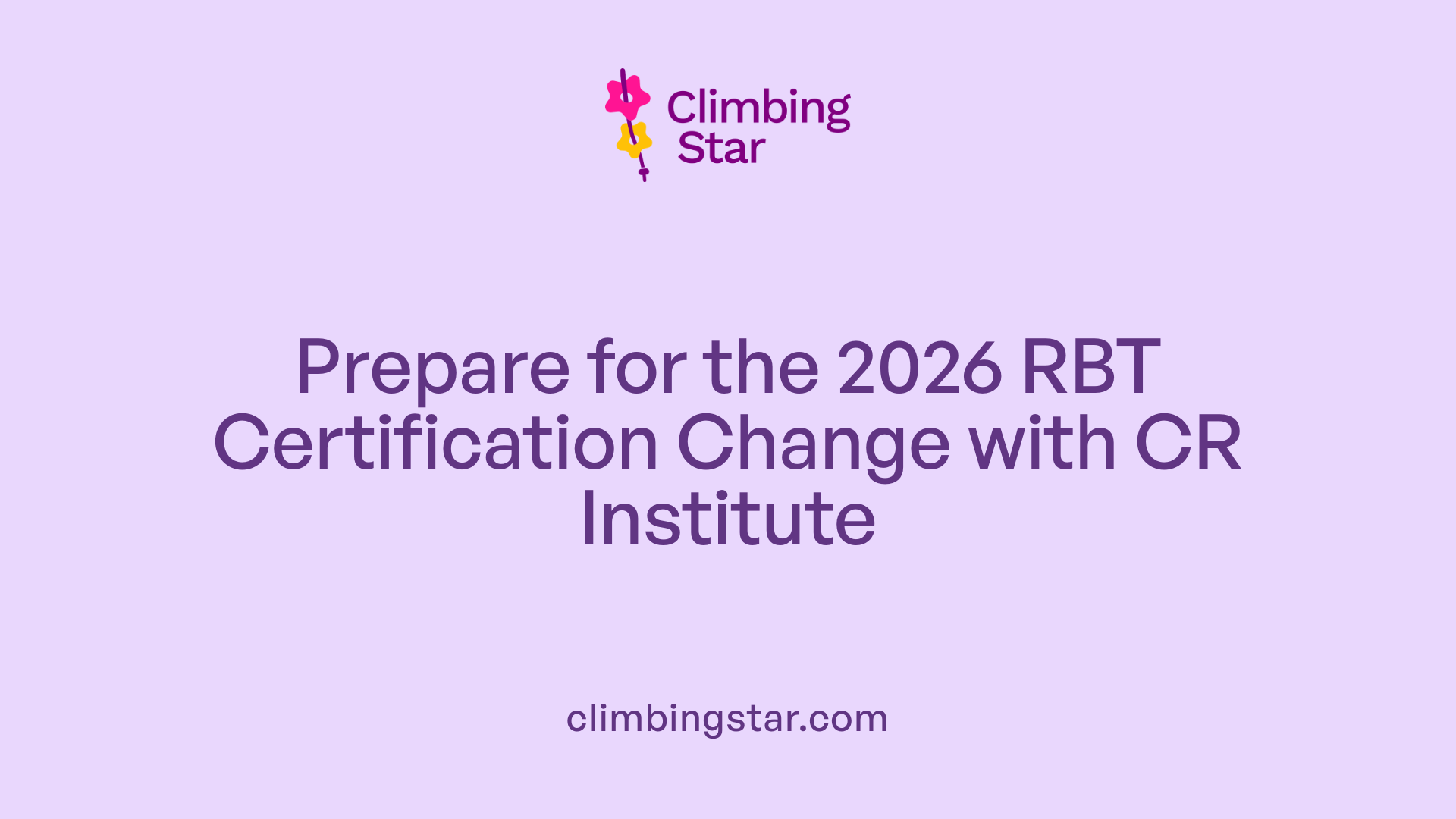Understanding the New Standards in RBT Certification
As the field of Applied Behavior Analysis (ABA) therapy continues to evolve, so too do the requirements and standards for Registered Behavior Technicians (RBTs) who play a vital role in delivering effective interventions for individuals with autism. Starting January 1, 2026, significant changes introduced by the Behavior Analyst Certification Board (BACB) will impact eligibility, training, and recertification processes for RBTs. This article provides a comprehensive overview of these updates, guiding RBTs and organizations through the renewal application process under the new framework.
The Role of RBTs within ABA Therapy and Its Goals

What is Applied Behavior Analysis (ABA) therapy and how is it used to support individuals with autism?
Applied Behavior Analysis (ABA) therapy is a scientifically validated approach focused on understanding and improving behavior through learning principles. It supports individuals with autism by encouraging positive behaviors and reducing those that may hinder learning or safety. ABA programs are personalized and developed under the guidance of credentialed behavior analysts.
These programs use techniques such as positive reinforcement and careful analysis of behaviors and their triggers. Methods include Discrete Trial Training and naturalistic methods within engaging environments that mimic real life. The therapy emphasizes building essential skills like communication, social interaction, and self-care.
Importantly, caregivers are involved throughout the process, learning how to reinforce new skills in daily routines and natural settings. ABA’s goal is to foster greater independence and enhance quality of life for each person, adapting to their unique strengths and needs.
What are the key goals of behavioral analysis in autism therapy?
Behavioral analysis in autism therapy aims primarily to increase functional and positive behaviors which include better communication, improved social skills, and greater independence in daily living activities. It also works on reducing harmful or disruptive behaviors.
This is achieved by applying evidence-based techniques that encourage learning through reinforcement and behavior monitoring. The focus extends to improving cognitive functions like attention, focus, and memory, all of which contribute to a person's overall development.
Early and consistent ABA intervention often results in significant gains in language, cognition, and social abilities. The overarching purpose is to support individuals to integrate successfully into their communities, making their everyday lives more autonomous and fulfilling.
Role and responsibilities of RBTs in supporting individuals with autism
Registered Behavior Technicians (RBTs) are frontline professionals who implement ABA therapy under supervision. They carry out behavior intervention plans directly with clients, collecting data on progress and adjusting techniques as needed.
RBTs are crucial in fostering skill acquisition and helping reduce problematic behaviors on a daily basis. Their work involves building trust and rapport with clients and collaborating closely with families to support consistent learning.
In essence, RBTs translate the plans developed by behavior analysts into actionable, hands-on therapy sessions that enable meaningful change and development for people with autism.
Professionals and Organizations Delivering ABA Therapy: Where RBTs Fit

What types of professionals and organizations typically provide ABA therapy?
ABA therapy is primarily delivered by a range of professionals including Board Certified Behavior Analysts (BCBAs), Registered Behavior Technicians (RBTs), licensed behavioral therapists, and psychologists. BCBAs typically oversee and design individualized treatment plans, providing expertise and clinical supervision.
Registered Behavior Technicians play a critical role in implementing therapy sessions directly with clients, working under the supervision of BCBAs to ensure fidelity to the intervention protocols. Licensed behavioral therapists and psychologists may also be involved in both assessment and treatment, depending on the setting.
The organizations providing ABA services are often specialized companies, clinics, or educational institutions that ensure the provision of evidence-based programs and adherence to professional standards. These organizations facilitate comprehensive training, ensure proper supervision, and maintain compliance with certification requirements.
Parent training and caregiver coaching are integrated components offered by many of these organizations to promote skill generalization and support clients beyond therapy sessions. Overall, a collaborative hierarchy exists where BCBAs lead clinical planning, RBTs manage day-to-day therapy delivery, and organizations coordinate resources and compliance.
Key Changes in RBT Certification and Training Requirements Effective 2026

Adoption of BACB’s 3rd Edition Test Content Outline
Starting January 1, 2026, the Behavior Analyst Certification Board (BACB) will implement its 3rd Edition Test Content Outline (TCO) for Registered Behavior Technician (RBT) certification. This update signifies a major shift in the eligibility and training requirements for prospective RBTs, reflecting updated competency standards to better prepare candidates for the field.
Training Course Alignment Requirements
From January 1, 2026 onward, all applicants seeking RBT certification must complete a training course that strictly aligns with the new 3rd Edition TCO. Training based on the previous 2nd Edition content will no longer qualify candidates for certification, making the completion of updated coursework mandatory.
Invalidation of 2nd Edition Training Courses After 2025
Training programs developed under the 2nd Edition TCO will become obsolete for certification purposes starting in 2026. This means organizations and trainees relying on older materials risk invalid certification attempts. Ensuring that all training content meets the updated standards is crucial to maintain eligibility and uphold BACB compliance.
Recommended Transition Timelines for Organizations
To avoid delays in credentialing and to remain compliant with BACB standards, organizations are advised to adopt the new 3rd Edition training courses by November 2025. This proactive transition will help prevent onboarding slowdowns, minimize administrative burdens, and protect both service quality and organizational reputation.
By adhering to these updated requirements, organizations and candidates will be well-positioned to meet BACB’s evolving standards and benefit from a smoother certification process starting in 2026.
Updates to Initial Competency Assessment and Evaluator Qualifications

Removal of Interview Option in Competency Assessments
Beginning January 1, 2026, the BACB has revised the initial competency assessment process for Registered Behavior Technician (RBT) certification. One significant change is the elimination of the interview option previously allowed during the assessment. This change standardizes the evaluation process, ensuring all applicants are measured by consistent, objective criteria.
Requirement for Assistant Assessors to Hold RBT or Higher Certification
The BACB has introduced a new qualification mandate for assistant assessors involved in the competency evaluations. Assistant assessors must now hold an RBT credential or a higher certification level. This requirement guarantees that individuals conducting assessments possess a sufficient understanding of RBT competencies and standards, improving assessment reliability and quality.
Enhanced Standards for Competency Validation
Together, these changes raise the rigor of the initial competency assessment. By removing subjective elements like interviews and tightening evaluator qualifications, the BACB aims to enhance the integrity and accuracy of competency validation. This ensures only well-prepared candidates earn RBT certification, maintaining high professional standards across the field.
The Shift to Biennial RBT Recertification and Professional Development

What is changing in the RBT recertification schedule?
Starting January 1, 2026, the Behavior Analyst Certification Board (BACB) is revising the Registered Behavior Technician (RBT) recertification process. Instead of requiring recertification annually, RBTs will now recertify every two years. This change aligns with the new 3rd Edition Test Content Outline (TCO) and reflects an updated approach to maintaining professional competency.
What are the new professional development requirements?
In each two-year recertification cycle, RBTs will be required to complete 12 hours of professional development units (PDUs). These hours aim to ensure that RBTs stay current with evidence-based practices and evolving standards in behavior analysis. This is a shift from previous requirements and emphasizes consistent learning and skill enhancement over a longer period.
How do these changes impact RBTs and organizations?
For RBTs, the extension to a biennial recertification offers more flexibility and a more manageable timeline for fulfilling continuing education. However, it also places a clear obligation to engage in ongoing professional development to retain certification.
Affiliated organizations and training providers need to adjust their monitoring and support systems to ensure practitioners meet these updated requirements. They should also update their training curricula and administrative processes in line with the BACB's new standards to avoid compliance issues.
In summary, this shift to biennial recertification coupled with mandatory PDUs represents a significant change to how professional standards are maintained in the field, promoting sustained competency while offering greater scheduling flexibility.
Risks of Non-Compliance with New RBT Certification Standards

What Are the Consequences of Outdated Training Programs?
Starting January 1, 2026, the BACB’s 3rd Edition Test Content Outline (TCO) will replace the 2nd edition for RBT certification training. Organizations that continue to provide training based on the outdated 2nd edition will produce candidates who do not meet current certification eligibility, causing those candidates’ credentials to be deemed invalid. This mismatch creates risks for both practitioners and organizations, as improperly trained RBTs may not perform according to the latest professional standards.
How Does Credential Invalidation Affect Onboarding?
If training courses are not updated in time, applicants face credential invalidation, resulting in delays during the onboarding process. This lag can postpone new hires from beginning their roles, disrupting service delivery. Organizations may experience gaps in staffing, reduced client satisfaction, and an overall slowdown in operational efficiency due to certification hold-ups.
What Are the Financial, Administrative, and Reputational Impacts on Organizations?
Non-compliance with the new BACB standards can lead to significant financial and administrative burdens. Organizations may incur additional costs for re-training staff, repeating certification processes, and managing the fallout of certification delays. Administratively, compliance violations increase paperwork and oversight demands, straining internal resources. Furthermore, reputational damage may occur if clients or partners perceive the organization as non-compliant or substandard, potentially reducing trust and future business opportunities.
Maintaining up-to-date training aligned with the 3rd Edition TCO is crucial to avoid these risks. The CR Institute’s new 40-hour RBT training course launching in November 2025 helps organizations ensure compliance and smooth transitions.
| Risk Category | Implications | Impact Description |
|---|---|---|
| Outdated Training | Credential invalidation | Candidates fail to meet new standards, risking invalid certifications |
| Onboarding Delays | Slowed hiring and service disruptions | Delayed entry of qualified RBTs leads to operational gaps |
| Financial Burden | Increased costs due to retraining and delays | Extra funds needed for corrective measures and disruptions |
| Administrative Load | Higher compliance and paperwork demands | More resources needed to manage non-compliance issues |
| Reputational Damage | Loss of client trust and credibility | Impact on business growth and stakeholder confidence |
Facilitating a Smooth Transition: Resources and Training Opportunities for RBTs

New RBT 40-Hour Training Course by CR Institute
Starting in November 2025, CR Institute will launch a comprehensive 40-hour RBT training course fully aligned with the BACB's 3rd Edition Test Content Outline (TCO). This course is designed to equip aspiring RBTs with the updated competencies required for certification beginning January 2026. By reflecting all new requirements, the training ensures compliance and prepares candidates thoroughly for the revised assessment expectations.
Benefits of Early Adoption and Course Alignment with 3rd Edition TCO
Organizations that adopt this new training early stand to avoid credentialing delays and onboarding disruptions in 2026. Transitioning by November 2025 allows sufficient time to update policies, train instructors, and prepare candidates under the revised standards. Timely alignment minimizes risks such as invalid credentials and service interruptions while maintaining adherence to BACB standards.
Support for Organizations and Practitioners in Certification Renewal
Beyond initial certification, the 3rd Edition TCO update includes a change from annual to biennial recertification, requiring RBTs to complete 12 professional development units every two years. CR Institute's training and resources also support ongoing professional growth and compliance, assisting organizations and practitioners in smoothly navigating certification renewal and competency assessment. This proactive approach reduces administrative burdens and strengthens service quality.
Preparing for the Future of RBT Certification
The introduction of the BACB’s 3rd Edition Test Content Outline and accompanying changes set a new benchmark for Registered Behavior Technicians committed to excellence in autism therapy. RBTs and organizations alike must prioritize transitioning to updated training courses and adapting to revised recertification timelines to maintain compliance and uphold professional standards. Early preparation and leveraging available educational resources, such as the CR Institute’s new training offerings, will mitigate risks associated with non-compliance and ensure uninterrupted service delivery. Ultimately, these reforms underscore the evolving nature of ABA therapy and the vital role of RBTs in fostering meaningful outcomes for individuals with autism.
References
- RBT Certification: What's Changing in 2026
- Applied Behavior Analysis (ABA)
- Applied Behavior Analysis (ABA)
- Applied Behavior Analysis (ABA) Near Me in NYC
- Applied Behavior Analysis | School of Health Professions
- Applied Behavior Analysis (ABA)
- Applied Behavior Analysis (ABA)
- Applied Behavior Analysis (ABA)






